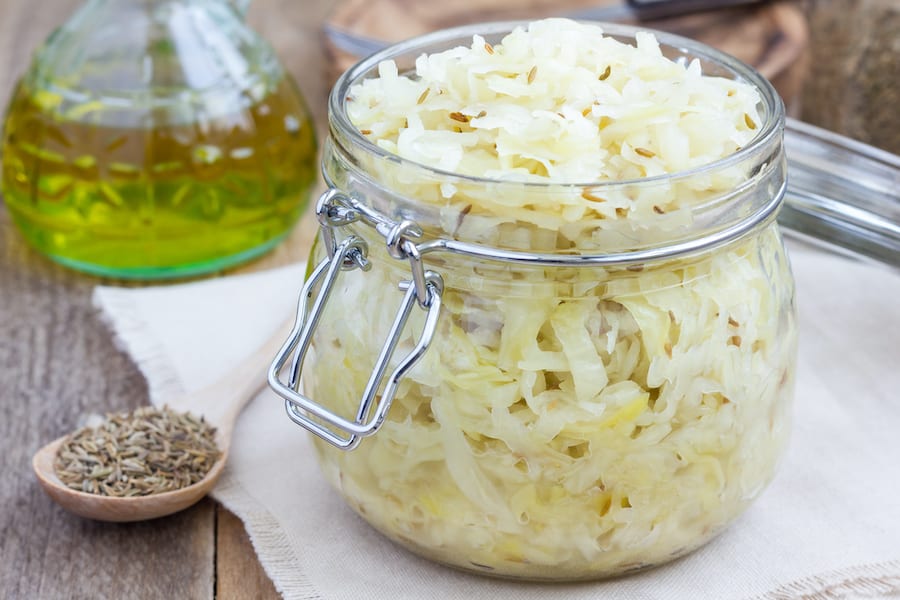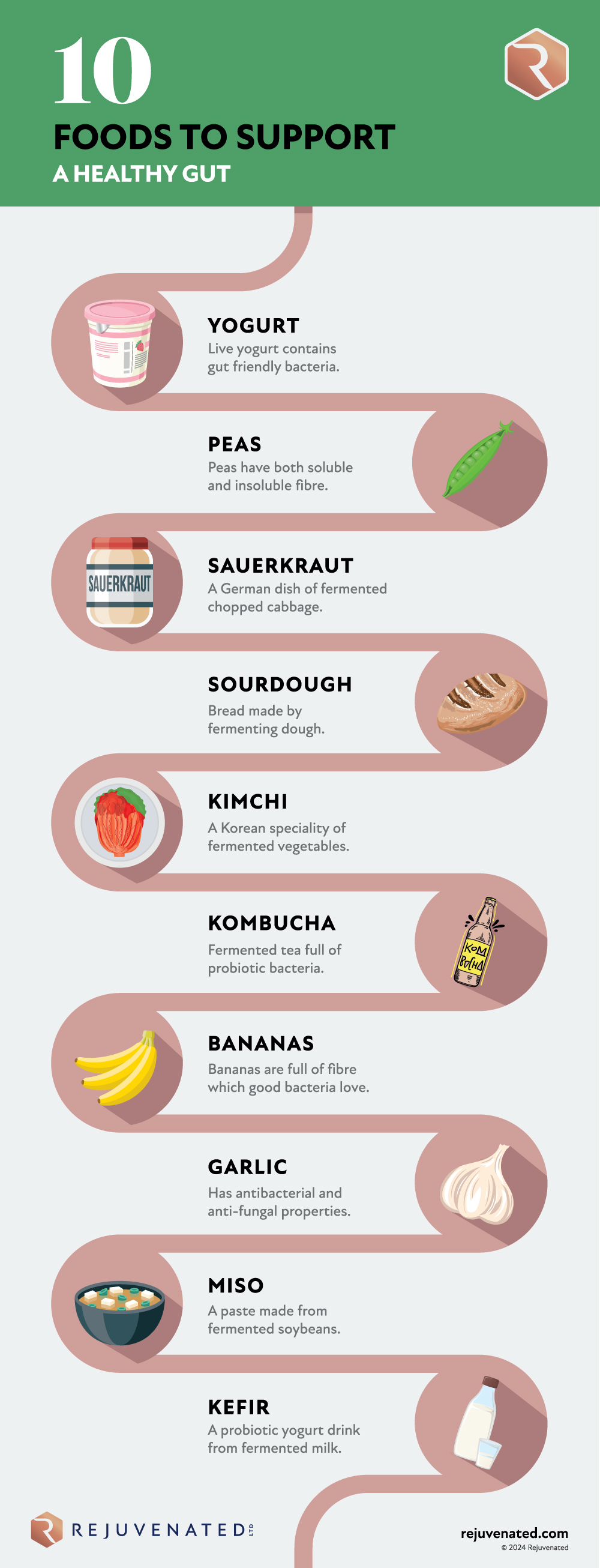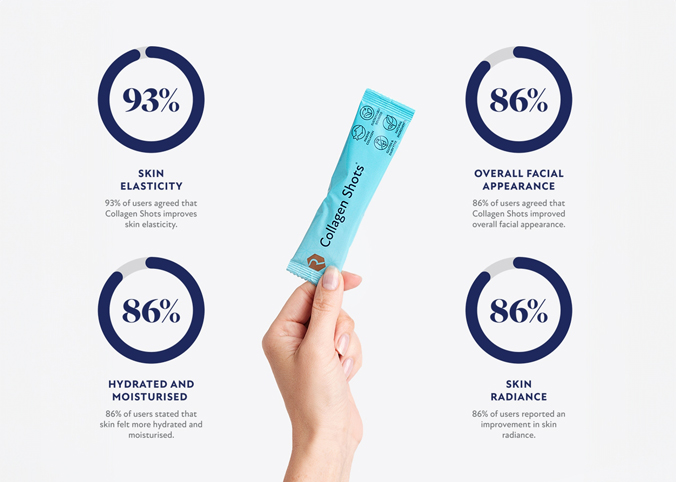What Foods Should You Eat to Improve Your Gut Health?

Who would have thought a few years ago that the health of our gut would become a buzz subject? The foods that we eat determine our gut health and play a part in overall wellbeing. The battle between good and bad bacteria diet in our digestive system has become a focus for nutritional scientists world-wide as they strive to find the magic key to staying well and keeping young.
If you thought all bacteria was bad then think again, for swimming around in the depths of your digestive system are tens of trillions of friendly bacteria which affect the overall body health. The different species and strains perform a multitude of diverse tasks. This all becomes part of our microbiome, which is an aggregate of all the microbiota that lives within our frame.
These beneficial bacteria aid healthy digestion and the absorption of food by producing different enzymes that break down what we eat to transport nutrients through the gut wall and into the blood stream. They also play a vital role in supporting our immune system.
What you eat can quickly change your microbiome. So which foods are good, and which are the bad foods for your gut health?
Foods to avoid
A typical Western diet doesn’t give the wide variety of foods required for a healthy microbiome.
Avoid refined foods such as white bread and sugar as these can destabilise the delicate balance within the microbiome. There is also evidence that some artificial sweeteners such as aspartame increase the growth of unhealthy bacteria within the gut(1).
Spirits, such as gin, decrease the number of beneficial bacteria whereas red wine consumption can have a positive effect on the gut due to its polyphenol content.

Foods to eat for a healthy gut
Eat a wide variety of plants
Fruits, vegetables, legumes and beans contain high amounts of fibre. A study has shown that eating a diet rich in fruits and vegetables prevented the growth of some disease causing bacteria(2). Certain foods have shown to increase the good bacteria Bifidobacteria, these include apples, artichokes, blueberries, almonds and pistachios.
Some other high fibre foods to eat for a healthy gut are:
- Chickpeas
- Beans
- Whole grains
- Green peas
- Bananas
- Sweet potato
- Artichokes
- Broccoli
Include fermented foods
Fermentation was used by ancient civilisations to preserve food. The process is still used today in many cultures and is becoming more widely consumed in the West as a way to promote our natural good bacteria.
Microorganisms like yeast and bacteria convert carbs including sugar and starch into alcohol or acids.
Alcohol and acids act as a natural preservative and give the fermented foods a slightly acidic taste. This process promotes the growth of the beneficial bacteria known as probiotics.
Fermented foods to include in your diet:
- Yogurt
- Kombucha
- Tempeh
- Sauerkraut
- Kimchi
- Kefir
It’s worth noting that you should eat natural yogurts and avoid fruit flavoured sugar yogurt.
Eat prebiotic foods
Prebiotics types of dietary fibre that act as food for the friendly bacteria in the gut. They especially support the growth of Bifidobacteria. This type of fibre that can’t be broken down by our digestive system, instead beneficial bacteria break them down in the large intestine.
Choose wholegrains.
Whole grains contain a lot of fibre and non-digestible carbohydrates, which is key for the support of a healthy microbiome. Some of these fibre and carbs are also prebiotics which make their way to the large intestine.
Eat foods rich in polyphenols
Polyphenols are rich in antioxidants and have a multitude of health benefits, however they are not absorbed effectively and much of the plant continues on to the colon where bacteria digest them, which makes them a beneficial food for supporting gut health.
Foods rich in polyphenols are:
- Grape skins
- Red wine
- Cocoa – dark chocolate
- Almonds
- Green tea
- Blueberries
- Broccoli
- Onions
- Turmeric
Take a probiotic supplement
Adding a probiotic supplement to your daily regime can help to support your microbiome by changing the overall composition of the microbiota. This is particularly the case if your system is out of balance. Adding prebiotics in the form of foods or dietary supplement will further promote this healthy balance.
Rejuvenated Immune Complex contains acidophilus lactobacillus a probiotic to support healthy beneficial bacteria.






